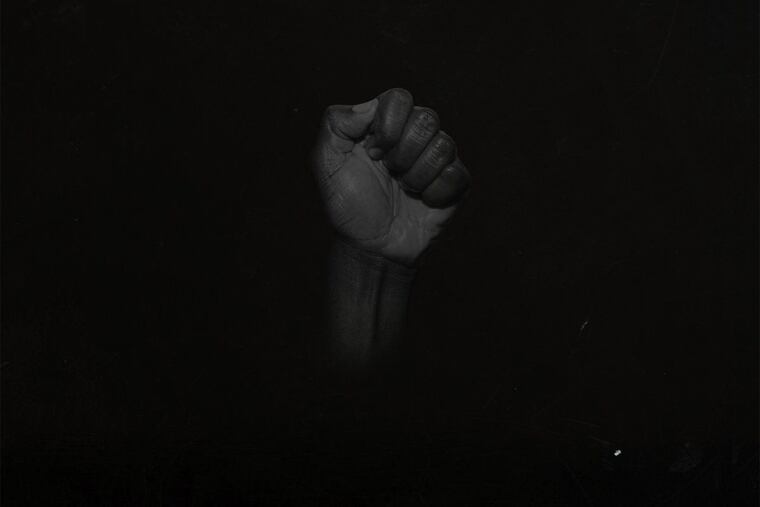Who is Sault? The mystery collective’s new album doesn’t say. But it speaks to the BLM moment with power and real grace. | Review
Sault's new album, "Black Is," draws on on dub, gospel, reggae, and funk to raise a fist against oppression and celebrate collective strength. Also well worth a listen: New releases from the Mekons and Joe Ely.

Sault
Untitled (Black Is)
(Forever Living Originals *** 1/2)
Near the halfway point of Untitled (Black Is), the third album by the mystery British soul-funk collective Sault, there’s a interstitial piece called “This Generation.”
The words are voiced by Laurette Josiah, who along with producer Inflo and singer Michael Kiwanuka, is the only contributor credited by name by Sault, who have done a remarkable job of keeping their identities secret in a time of online sleuthing.
“It’s time to wake up,” Josiah says, as a skittering beat fades into the background. “We have walked the walk many years ... we have expressed our voices. People have died ... Nobody listened, nobody cared .... This generation cares.”
In 2019, Sault made an impressive entrance with two albums, enigmatically titled 5 and 7, each delivering dance floor catharsis. Untitled (Black Is) feles like a natural progression, and a leap forward. It’s a serious-minded, soul-searching affair that issues a call to action with spirit-lifting songs attuned to the Black Lives Matter movement.
Untitled is a seductive listen. Released on Juneteenth with a message from the band that it intends “to mark a moment where we as Black People, and of Black Origin are fighting for our lives,” its 20 undulating tracks often recall Black British dance collective Soul II Soul.
Drawing on on dub, gospel, reggae, and funk, the album raises a fist against oppression and celebrates collective strength. In “Black,” a male voice repeats the words “Black / I’m Black,” as a P-Funkish keyboard swirls and a woman sings out in support and solidarity: “Don’t you dare lose yourself, beautiful.”
— Dan DeLuca
Mekons
Exquisite
(Bloodshot *** 1/2)
It’s been 43 years since the Mekons first began as a punk-rock art project at Leeds University, and while the band has never followed a conventional trajectory or achieved commercial success, they’ve carried on heroically, “proceeding in sporadic bursts, unwilling to expire,” as the notes to this surprise release put it.
Exquisite comes right on the heels of 2019′s excellent Deserted, for which the band led by indefatigable singer-guitarist and virtual artist Jon Langford recorded in California’s Mojave Desert.
A similar strategy was in play for Exquisite, with the far-flung group planning to travel from various points to gather in Valencia, Spain, this spring. COVID-19 put a stop to that, but not to the Mekons’ ability to concoct shadowy, ramshackle, top-notch songs in which existential dread is confronted with sly wit and sharply pointed socio-political critiques.
The album’s title comes from a game that Marcel Duchamp, Jacques Prevert, Andre Breton and Yves Tanguy played in Paris in 1925, with each artist adding to a composition in sequence. Unable to gather en masse, Langford and his seven bandmates — including the divine-voiced Sally Timms (here credited as Sallyvador Dolly) — put Exquisite together with available technology, singing and playing into mobile phones, sharing via email and WhatsApp.
The results, as assembled by producer Mike Hagler, sound remarkably of a piece. The band has always seemed charmingly unrehearsed, so the album sounds completely natural in songs like the death-haunted “Escalera” and in “West Yorks Ballad,” in which Tom Greenhalgh navigates his way though “backstreets paved with hate.” Exquisite shambles along, always threatening to fall to pieces, but never quite managing it.
— Dan DeLuca
Joe Ely
Love in the Midst of Mayhem
(Rack ‘Em Records ***)
The title of Joe Ely’s new album tells the story: It’s a direct response to the tumultuous times we are living in. It’s somewhat ironic, then, that the songs actually predate the current trauma. They were written over a span of years (including one with his Flatlanders mates Jimmie Dale Gilmore and Butch Hancock) but were never previously released.
They fit together beautifully here. Ely made his name as a country-rock dynamo, a sort of Lone Star Springsteen who famously toured with the Clash. But as he unfolds a theme about the redemptive power of love, his aim here is to soothe and reassure.
And he does just that, without ever sinking into sappiness or sentimentality, on titles such as “Soon All Your Sorrow Be Gone,” “Your Eyes,” “Don’t Worry About It,” and “You Can Rely on Me.” While there are bursts of full-fledged rock, the music is mostly understated and atmospheric — plucked guitars, stately pianos, Joel Guzman’s accordion flourishes —matching the grace of the lyrics.
“I open my heart,” Ely declares on the finale, “Glare of Glory,” summing up what he’s been doing throughout the album’s 10 tracks. Its quietly stirring message of hope should outlive the moment.
— Nick Cristiano